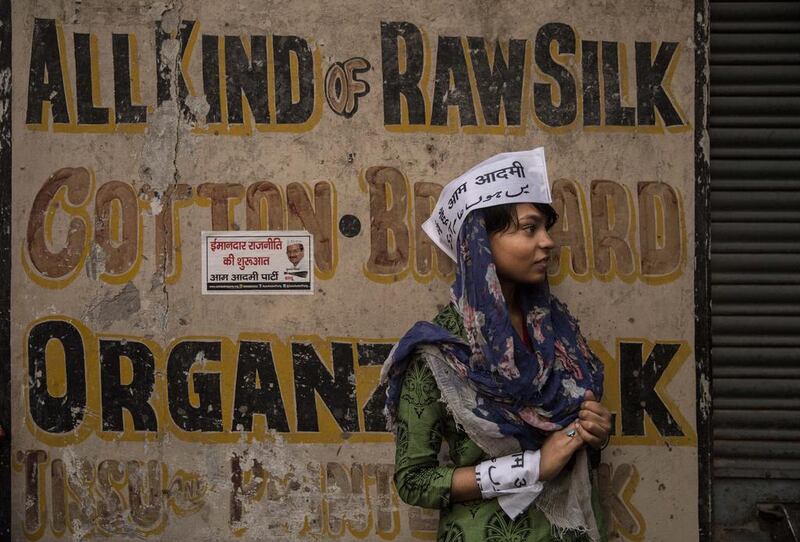NEW DELHI // Rahul Gandhi warned on Saturday of an India divided by caste and creed if the Hindu nationalist opposition wins power, as campaigning ended in the nation’s multi-stage election.
The Congress party leader sought to muster a final show of strength in the holy Hindu city of Varanasi with the party struggling to snatch victory from the jaws of a widely forecast election defeat by the Bharatiya Janata Party (BJP).
The BJP “only wants to divide people, make people fight each other”, Mr Gandhi told a rally in temple-studded Varanasi, one of the last constituencies due to vote in Monday’s final day of balloting.
The results of the marathon election will be announced on Friday.
Varanasi is being contested by Narendra Modi, a charismatic but divisive politician who is tipped to lead the BJP to power after a decade in opposition and be India’s next prime minister.
Mr Modi, a tireless campaigner who has travelled 300,000 kilometres in the past eight months speaking to 437 rallies – in addition to addressing 1,350 rallies as a hologram – according to the BJP.
Mr Modi’s high-tech campaign is believed to mark the first time holograms have been used to reach voters in an Indian election campaign.
Mr Modi, projecting himself as a political outsider who will overhaul India’s political status quo, launched a blistering attack on Saturday on the Gandhi dynasty – a dominant governing force for most of India’s history since independence from Britain.
Mr Modi, 63, referred to Mr Gandhi and his party president mother, Sonia, as the “mother-son government” and appealed for a “good, strong mandate in Delhi to work for the people”.
“People, till the time you end these dynastic politics, things won’t improve,” Mr Modi said to cheers in Robertsganj, another part of politically pivotal Uttar Pradesh state going to the polls on Monday.
The BJP was already scenting victory, predicting “a clear majority” nationally.
Top party organiser Amit Shah forecast the BJP and allies would get 300 seats in the 543-seat parliament.
Indian opinion polls, while sometimes spectacularly wrong in the past, also suggest the Hindu nationalists are set to score a strong victory.
“I believe in one India, the best India,” said Mr Modi, chief minister of economically thriving Gujarat state, who is popular among business and middle-class voters frustrated by a sharp economic slowdown, high inflation and corruption scandals.
Still, 12 years ago, few would have guessed Mr Modi would be in line to be premier after riots swept Gujarat during his first days as chief minister, killing at least 1,000 people, most of them Muslims.
The BJP leader was never charged with wrongdoing but many critics allege he did too little to stop the bloodshed.
The Gandhis, South Asia’s most famous political dynasty, have given India three premiers since independence. But bookies reckon chances of Rahul becoming premier are so minuscule they’ve stopped taking bets.
Investors, confident of a BJP win, have driven India’s benchmark share index to record highs.
Few observers, though, expect the BJP to reach the magic 272 number needed for an outright majority. Many anticipate a period of fierce horse-trading as regional heavyweights trade parliamentary support for political concessions.
* Agence France-Presse





